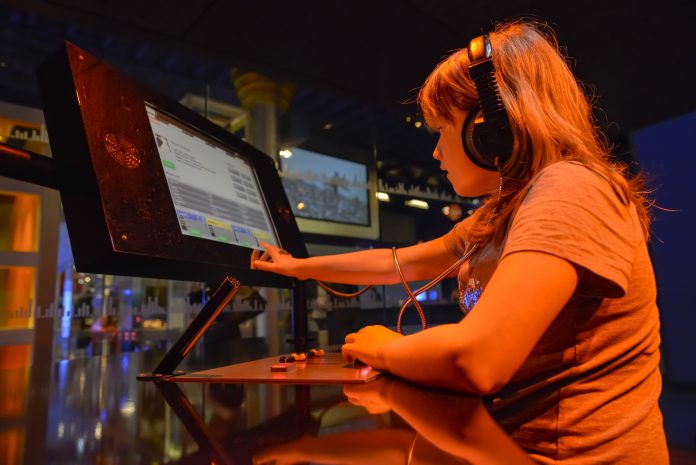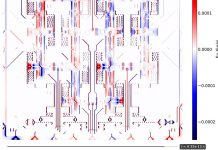Craig Berens, COO at YMCA Newark and Sherwood, discusses the importance of digital media in boosting young people’s confidence
In 2008, 83.3% of young people aged 11-15 participated in arts and crafts activities. This number has fallen by almost 16% in the last ten years, according to the Department for Digital, Culture, Media and Sport. In fact, this year is the first time that fewer 11-15-year-olds took part in the activities than those aged 5-10.
Arts form a major part of the early school curriculum, helping young children to express themselves. Yet, at secondary school, creative subjects are being squeezed due to the increased focus on core academic subjects. Music, for example, is being cut back from many curriculums.
And yet, new evidence has shown that arts education has a remarkable impact on students’ academic, social and emotional outcomes. This supports the Developmental Assets framework, which identifies the building blocks of healthy, successful, responsible lives in young people. It emphasises the importance of creative activities and recommends that young people spend at least three hours per week on music, theatre or other arts.
Creativity gives us a new outlook on perceiving the world around us. Creative people find routes to connect with people and solve problems that others cannot see. From improving cognitive skills to boosting imagination and confidence, young people can utilise life skills that creativity gives them from a young age. It’s wired in all of us but we need the ability to tap into our inner creativity and unlock it.
With advances in technology and digital media, it’s important to make the latest equipment and facilities accessible so young people can uncover their creative musical potential. Even leading musicians have spoken about the need for all children to have the option to learn an instrument.
This technology is not just for having fun with music and arts – although that’s important, too.
Boosting confidence
One children’s theatre found that performing for peers boosts confidence and self-esteem and that students involved in drama demonstrate an elevated self-concept compared to those who are not involved in such activities. Creativity can grow core life skills that are key to development but it also gives young people a safe space to experiment and discover their potential. After all, you’re not going to learn something new unless you try it.
Almost all music programmes will involve either a public performance or at least one that is in front of peers, often with feedback. It also develops their individual strengths – kids who may not be as academically gifted in traditional subjects might thrive through music and creative arts. This can also boost their confidence and help them in their schoolwork.
Freedom of expression
Learning to follow directions is important, but when it comes to creativity, too many directions can make you rigid. Children need to be able to express themselves, which can then help them to develop and make their own decisions in art and in life later on.
It’s easy to follow the lead and not express yourself but with music, songwriting and singing, you can talk to the world in a way that’s personal to you. They can find their niche and distinguish themselves from others, understand differing opinions from others, and get their voice heard. We all have different life experiences which influence who we are and creative arts help us build the skills to understand these different perspectives.
Community-driven creativity
Creativity is at the heart of youth development in a scheme in Nottinghamshire. YMCA Newark and Sherwood has announced the launch of its YMCA Digital project, which currently operates at Newark Academy. Originally set up six years ago by Nottinghamshire YMCA, Youth Music Support Workers help young people (aged 13-19) with the skills and platform they need to develop their creative passions in a safe, non-judgmental environment.
A community not-for-profit scheme designed to inspire, support and enhance the development of young people through creative arts and digital media, YMCA Digital gives them the freedom to explore the areas that inspire them most, from songwriting to radio production and live music to DJing. Its foundations are built on the Developmental Assets framework, which covers the importance of young people perceiving that adults in the community value youth. It also advocates spending three or more hours per week in sports or club and being given useful roles in the community.
The charity is currently building a state-of-the-art recording studio, rehearsal space and digital production rooms, which will level up the offering at the YMCA Newark and Sherwood Community and Activity Village. It will open in Spring 2021, and the entire village will be dedicated to the healthy living, development and social mobility of young people, in an area which is currently ranked second-lowest in the social mobility scale.
Volunteers giving back
“Although a main draw for young people is our equipment and facilities, the biggest appeal is definitely our inspiring staff team,” explained Ben Felstead, Lead Youth Worker and Young Creatives Coordinator at YMCA Digital.
“All of our volunteers have been participants [in] our YMCA Digital courses, and they just don’t want to leave! They also want to give back to support projects that have helped them.”
Believing in the potential of the community’s next-generation, staff also support participants to work towards AQA accredited arts awards to translate their achievements into transferable skills.
Tawanda Kambeu (TK), joined the charity’s digital movement when he was a teenager and loved the organisation’s ethos and team so much he is now integral to the project’s next chapter.
TK, who is now a Youth Music Leader at YMCA Digital, said: “I started off here as a young person myself when I came down to the group’s hub at NGY MyPlace in Nottingham, and it quickly became my home-away-from-home.
“It has been people like Ben (Felstead) and Darren (Goodlad) – these guys helped me see what I would like to do and what I could try with music. As I progressed on and the years went by, I began to near the age where youth funding stops, so I approached the team and said that I didn’t want to leave!”
Ben Felstead explained: “We are not just here to push creativity; we are here to grow core life skills that are key to development while giving our young people a safe space to experiment with their skills and test the waters of their potential. Participants are gaining essential transferable skills such as problem-solving, which will prove instrumental on their CVs, as well as personal development.”
The YMCA’s work with Developmental Assets framework sets a solid foundation for young people to create a positive identity of themselves. It helps them commit to learning, use their time constructively and responsibly, learn social skills, and have fun while doing it.
All young people need to have a creative outlet. Giving them the opportunity to cultivate their inbuilt creativity in and out of the classroom should never be overlooked. Ultimately, it gives them a place to belong to and contribute to and enables them to thrive as a creative individual, now and in the future.











